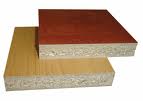A study made by the Forest Products Research and Development Institute (FPRDI) of the Philippines shows that coconut coir dust with forty percent solution of nitric acid and hot pressing for fifteen minutes at one hundred fifty degrees Centigrade could be used in producing binder less particle board.
The study was made at FPRDI’s Chemical Processing and Product Development Division. Coconut coir dust is the seventy percent remnants of the coconut husk after the valuable fibers have been removed.
With more than ten billion nuts harvested annually in the Philippines, disposing the bulk of its coconut coir dust becomes a problem despite the current practice of using it as soil conditioner.
In the light of problems associated with the use of petroleum based adhesives such as formaldehyde emission, fluctuating cost and availability. Coconut coir dust has been reported to contain lignin and tannin in much greater amount than wood.
Lignin, a bonding component of some plants, makes about fifty four percent of coir dust. Attempts have been made here and abroad to produce binder less particle board. One method involves steaming the wood prior to pressing at high temperature and pressure.
Another method, involves the activation of the wood components by chemical treatment using an oxidizing agent such as nitric acid.
The FPRDI study verified the technical feasibility of producing particle board from coconut coir dust by simply hot pressing and evaluated the effect of various chemical treatments in board production.
To do this, the FPRDI study subjected coconut coir dust to four sets of experiments. In the first two sets, treated coir dust was pressed at different temperatures and length of time. This resulted in boards with very poor bending and internal bonding strengths but with sufficient stability, particularly boards pressed at two hundred fifty degrees Centigrade.
“This indicated that it was not technically feasible to produce binder less boards by simply hot pressing untreated coconut coir dust”, an FPRDI researcher said.
The third set of experiments involved the treatment of coir dust with forty percent solution of nitric acid and pressed at one hundred fifty degrees Centigrade. “Treatments at thirty percent nitric acid level and pressing for fifteen minutes resulted in boards with strength and stability satisfying the industry standard for particle board. Treatment at twenty percent level also gave comparable results”, the researcher concluded.
